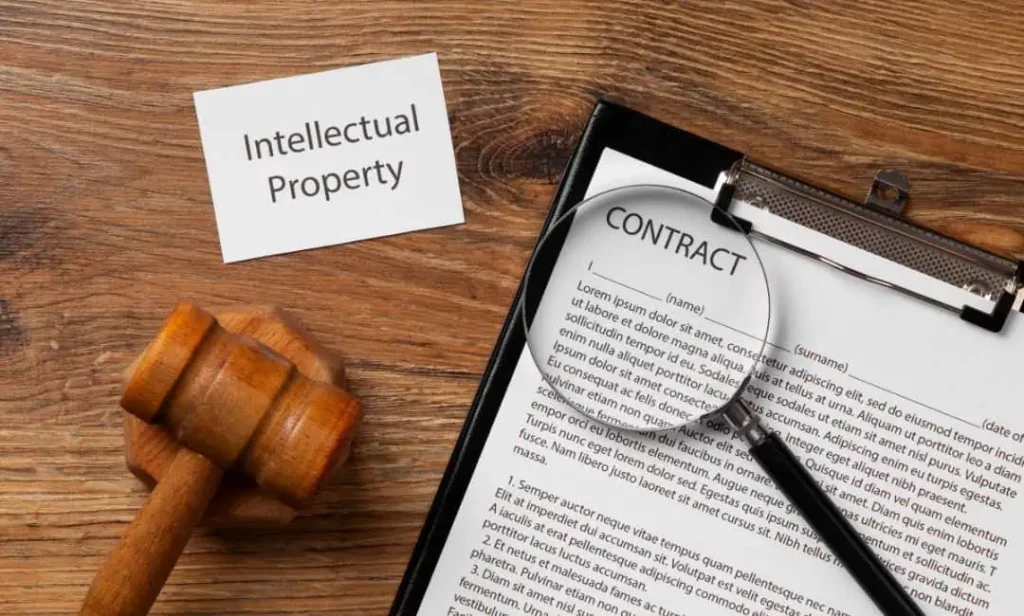
Thinking about making a move in Canada’s property market? If you’re buying, selling, or starting in real estate, you need to understand real estate laws—it’s more important than ever. Real estate brings big opportunities, but legal rules can quickly get confusing.
You might be asking yourself:
“Do I need legal help to purchase a home?”
“What if the seller doesn’t disclose a major issue?”
“Am I allowed to walk away from a signed deal?”
These situations aren’t just “what-ifs”—they happen often and can cost you time and money if you’re not ready. When you learn the legal basics, you protect yourself and make smarter decisions.
Keep reading to learn how to stay one step ahead.
Why Understanding Real Estate Laws Matters?
Real estate deals involve big money and legally binding contracts. A small mistake—like missing a key detail or not knowing your rights—can delay your deal, cost you thousands, or even lead to legal trouble.
That’s why understanding Canadian real estate laws is more than just helpful—it’s essential.
Whether you’re buying, selling, or working in the industry, knowing the legal basics helps you:
- Avoid costly mistakes by following the rules and disclosure requirements
- Protect your investment by understanding your rights and obligations
- Make smart, confident decisions that reduce risk and support long-term success
From reviewing an offer to finalizing a deal, legal knowledge gives you an advantage. Even if you work with a real estate professional, it’s important to understand the basics of Canadian real estate laws. This knowledge helps you ask better questions and spot potential red flags early.
No matter your level of experience, understanding the legal side is one of the best tools you can have in real estate. It gives you control, confidence, and peace of mind.
Who This Guide Is For
Whether you’re new or experienced, this guide helps you understand the legal side of real estate in Canada. It’s made for anyone who wants to avoid mistakes and make smart choices.
- First-time buyers or sellers – Learn the legal basics and feel confident with every step.
- Property investors – Keep up with changing laws and protect your investments.
- Real estate agents – Improve your knowledge and help clients avoid legal issues.
- Anyone interested in real estate – Make better decisions by understanding the legal process.
No matter your role, this guide gives you clear legal knowledge to use in any real estate deal.
Essential Foundational Real Estate Laws in Canada

1. Provincial vs. Federal Jurisdiction
Most people don’t realize this, but real estate laws change depending on the province. The rules in Ontario aren’t exactly the same as in Alberta or Quebec.
- Provincial laws cover:
- Who owns the property
- Licensing for real estate professionals
- Land use and zoning rules (what you can build and where)
- Who owns the property
- Federal laws cover:
- Mortgage rules, like the stress test to qualify for a loan
- Anti-money laundering laws, which require reporting large transactions (FINTRAC)
- Mortgage rules, like the stress test to qualify for a loan
For example, in Ontario, the Real Estate Council of Ontario (RECO) oversees real estate agents. In Alberta, that job is done by the Real Estate Council of Alberta (RECA).
Tip: Always check the rules for your specific province before signing any documents. The laws that apply depend on where the property is located.
2. The Contract of Purchase and Sale
This contract is the legal agreement between the buyer and seller. It’s a crucial document that sets out the terms of the sale.
Key parts include:
- Conditions (or “Subjects”): These are special clauses that must be met for the deal to go through, like getting approved for a mortgage or passing a home inspection.
- Deposit Amount: This is the money the buyer puts down upfront to show they’re serious.
- Closing Date: The day the ownership officially changes hands.
If either buyer or seller breaks the contract, there can be serious consequences. For example, the person who breaks the contract might lose their deposit or be sued for money damages.
Pro tip: Never sign this contract without reading every part carefully. If something isn’t clear, ask your agent or lawyer to explain it fully before you commit.
3. Property Disclosure Obligations
Sellers have a legal duty to be honest about the condition of the property.
In many provinces, sellers must disclose:
- Hidden problems (latent defects): Issues like mold, leaks, or structural damage that aren’t obvious right away.
- Major repairs or renovations: Any big work done on the home, especially if it wasn’t done with proper permits or inspections.
If a seller hides problems, the buyer can take legal action. They might be able to cancel the sale or sue for damages to cover repair costs.
Want to know which companies are making a real impact? Don’t miss our blog on the best real estate company to work for in Canada.
What’s New in Canadian Real Estate Law? Key Updates & Changes

1. Foreign Buyer Ban Amendments
Canada has introduced new real estate rules that ban certain non-Canadians from buying residential property. This measure aims to slow down rising housing prices and make homes more affordable for residents.
Who’s exempt from the new real estate rules ?
- Students who have lived in Canada for five or more years
- Workers with valid work permits
What happens if someone breaks this law?
They could face fines up to $10,000 and may be required to sell the property. This enforcement helps ensure compliance with the ban and protects Canadian buyers.
2. Anti-Flipping Tax Rules
Starting in 2023, a new real estate rule targets quick home resales. If you sell a property within 12 months of buying it, the profit could be taxed as business income instead of a capital gain.
Who does this affect?
- House flippers
- Property investors
Are there any exceptions?
Yes. Life events like divorce, job relocation, or the death of a spouse may exempt you from this tax.
This rule is designed to reduce speculation in the housing market and help keep homes more affordable for everyone.
3. Digital Signatures & Remote Closings
Since the pandemic, new real estate rules in many provinces allow buyers and sellers to complete transactions remotely using digital signatures.
Where is this allowed?
- Ontario
- British Columbia
- Alberta (with some conditions)
What does this mean for you?
You can now buy or sell a home from the comfort of your own home. Just make sure your lawyer or notary supports remote closings to keep the process smooth and legal.
Explore Legal Requirements for Real Estate Services

1. Licensing for Realtors
In Canada, every real estate agent must have a valid license to operate legally. This protects you as a buyer or seller and ensures agents meet professional standards.
Who regulates licensing?
- Ontario: Real Estate Council of Ontario (RECO)
- Alberta: Real Estate Council of Alberta (RECA)
- British Columbia: BC Financial Services Authority (BCFSA)
Why is licensing important?
Working with an unlicensed agent is risky and against the law. If problems arise, you won’t have legal protection or recourse.
Penalties for unlicensed agents:
- Heavy fines
- Legal action
- Permanent bans from practicing
Always verify your agent’s license before starting any transaction.
2. Fiduciary Duties to Clients
Real estate agents owe their clients important legal duties called fiduciary duties. These include loyalty, confidentiality, and full disclosure.
What does this mean in practice?
- Agents must inform you about any problems with a property.
- They must disclose any conflicts of interest.
- Your personal information must be kept confidential.
Example:
An agent failed to tell a buyer that they were related to the seller. The buyer sued and won the case. This shows why transparency is crucial.
Key takeaway:
Your agent should always act in your best interest, protecting you throughout the deal.
3. Dual Agency Rules
Dual agency happens when one agent represents both the buyer and the seller in the same transaction.
Is dual agency legal?
- British Columbia: Mostly banned due to conflict risks
- Ontario and Alberta: Allowed but only with full disclosure and consent
Why is dual agency risky?
The agent cannot fully represent both parties fairly. This could mean you might not get the best deal or all the information you need.
Tip:
If an agent offers dual agency, ask clearly, “Who do you represent in this deal?” Make sure you understand their role before proceeding.
Curious about the earning potential in real estate? Find out how much real estate agents make and what factors affect their income.
First-Time Buyer & Seller Legal Checklist: What You Need to Know

For Buyers
When buying your first home, there are important laws and rules to keep in mind to protect yourself and your investment:
1. Mortgage Stress Test:
This federal rule requires lenders to check if you can afford your mortgage payments at higher interest rates. It helps prevent you from borrowing more than you can handle, keeping your finances safe.
2. Title Insurance:
Title insurance protects you from unexpected problems like title fraud, unpaid property taxes, or disputes over who owns the property. It’s a smart way to avoid costly legal issues after you buy.
3. New Home Warranty Programs:
If you’re buying a newly built home, warranty programs offer protection against defects. In Ontario, the Tarion Warranty covers major issues for up to 7 years, giving you peace of mind.
For Sellers
Selling your property comes with its own legal responsibilities. Here are some key things to know:
1. Capital Gains Tax:
If the property you’re selling is not your primary residence (for example, a rental or vacation home), you may have to pay tax on the profit you make. It’s important to understand how this affects your finances.
2. Legal Preparation Before Listing
If your property is part of an estate, a divorce settlement, or probate, you’ll need all necessary legal documents ready before listing. Having these in order helps avoid delays and keeps the sale on track.
3. Hire a Lawyer Early:
Working with a real estate lawyer from the start can prevent last-minute problems. They help review contracts, clear any legal hurdles, and ensure the process moves smoothly without rejected offers.
New to real estate? A property survey tells you exactly where your land starts and ends. It’s a must for buyers and sellers.
Real Estate Fraud in Canada:How to Avoid It
Unfortunately, real estate fraud is a real threat. Here’s how to protect yourself:
1. Title Fraud
This happens when someone steals your identity and fraudulently sells your home without your knowledge. It sounds scary, but you can guard against it by getting title insurance. This insurance helps protect your ownership rights and gives you peace of mind.
2. Wire Fraud
Hackers sometimes intercept emails or closing instructions to reroute your funds to their accounts. To avoid this, always verify wiring instructions by calling your lawyer or trusted professional directly before sending any money.
3. Too-Good-To-Be-True Deals
If a real estate offer seems unbelievably good and urgent, slow down and think twice. Scammers often use pressure tactics to rush you into a bad deal. Take your time and verify all details carefully.
FAQs on Canadian Real Estate Laws
Can you back out of an accepted offer legally?
Yes—you can back out if your offer includes conditions like financing or inspection. If it doesn’t, you risk being sued or losing your deposit.
Do sellers need a lawyer in Canada?
Yes, sellers usually hire lawyers. Lawyers handle contracts, closings, and title transfers in most provinces.
What’s the penalty for breaking a real estate contract?
If you break a contract, you may lose your deposit or face a lawsuit for breach of contract.
Are home inspections legally required?
No, the law doesn’t require home inspections, but experts strongly recommend them to avoid costly problems.
Real Estate Laws by Province Overview
| Province | Licensing Body | Digital Closings | Dual Agency Allowed? |
| Ontario | RECO | Yes | Yes (with disclosure) |
| Alberta | RECA | Yes (partially) | Yes (with consent) |
| BC | BCFSA | Yes | No (except rural) |
| Quebec | OACIQ | Yes | Yes |
| Nova Scotia | NSREC | Varies | Yes |
Conclusion & Next Steps
Buying or selling a home in Canada? It’s a big deal—but the legal stuff doesn’t have to be scary.
Whether you’re a first-time buyer, a seller, or even an agent, it’s important to know the basic rules so you don’t run into trouble. Every province has slightly different laws, so a little guidance goes a long way.
The good news? You don’t have to figure it all out on your own. If you have questions or need a hand, we’re here to help make things simple.
Looking for expert help for your real estate journey? Partner with top real estate brokerages to get reliable service and support.






